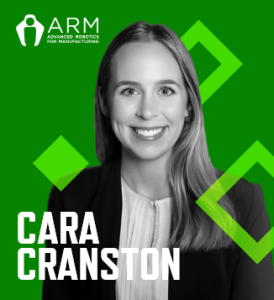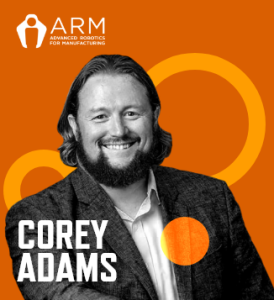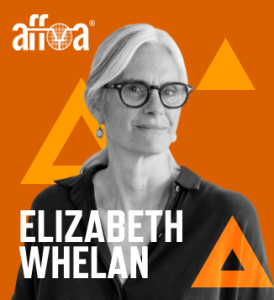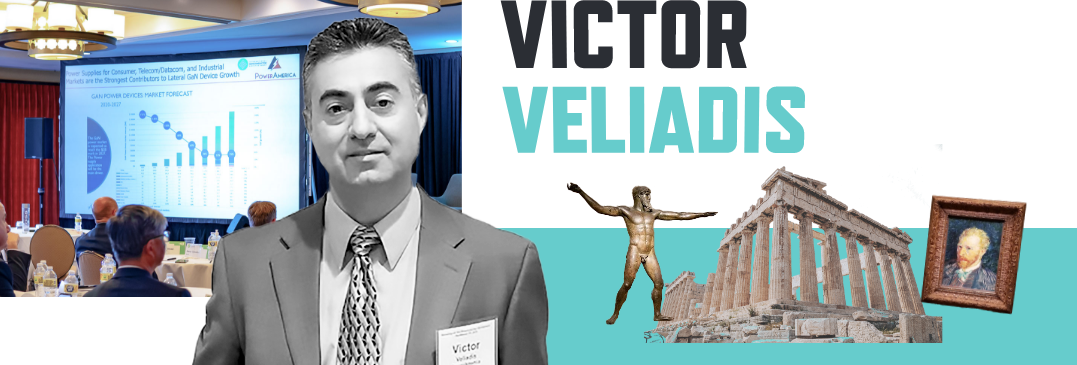
Institute leader, power semiconductor innovator, Karate Black Belt
Dr. Victor Veliadis is the Executive Director and Chief Technology Officer of the PowerAmerica Institute, which is managed by North Carolina State University. PowerAmerica, one of the 16 innovation institutes in the Manufacturing USA network, is working to revolutionize high-power energy efficiency in electronics, power grids, electric vehicles and more. They are accelerating the adoption of smaller and more energy-efficient advanced wide bandgap (WBG) semiconductor chips, made with silicon carbide (Sic) and gallium nitride (GaN). WBG semiconductors are growing in demand for many of today’s critical high-power applications, such as electric vehicle traction and charging systems, industrial motors, renewable energy systems, and data centers.
Victor worked for 21 years in the semiconductor industry and was a senior advisory semiconductor engineer at Northrop Grumman prior to joining PowerAmerica in 2016.
“The prospect of being in a field you love, what you worked on in its origins, and taking this technology for 20 years into a reality, that was very fascinating to me,” he said. “Some of the research may end up in a product, some of it will not,” he said. “But I knew the chips that I was fabricating in the cleanroom were coming to wider use. The new model Tesla has chips made of silicon carbide. I was working on that 20 years ago.”
“I feel good about helping deliver a better planet to future generations. There is a lot of satisfaction in that.”
His Journey Includes Research and Knowledge Sharing
Victor received a Ph.D. in Electrical and Computer Engineering from Johns Hopkins University in 1995, and he has 27 issued U.S. patents. In addition to his private sector work, he has taught at Johns Hopkins, St. Joseph University, Ursinus College, and NC State. He has given more than 90 invited presentations, tutorials, and keynotes at major conferences in India, Korea, China, Europe, and the U.S. He is an Institute of Electrical and Electronics Engineers (IEEE) Fellow and a distinguished lecturer for the group’s Electron Devices Society. He also received military training in the Army Infantry.
For Victor, going from a private company where work is narrow and proprietary to working for an entire emerging industry was thrilling.
“Now you have a bird's eye view of the whole sector instead of being in the weeds,” he said. “You can impact the entire sector, where you allocate resources in a way to synergistically advance materials, fabrication, advanced packaging, and the systems and applications they enable. It impacts the entire supply chain.”
The appeal was, and continues to be, that he is making a difference in the economy, national security, and in the environment. “I feel good about helping deliver a better planet to future generations. There is a lot of satisfaction in that.”
“Some of the research may end up in a product, some of it will not,” he said. “But I knew the chips that I was fabricating in the cleanroom were coming to wider use. The new model Tesla has chips made of silicon carbide. I was working on that 20 years ago.”
The PowerAmerica Story
Victor and the PowerAmerica team work with the institute’s private sector and academic members to identify barriers, opportunities and needs. Some issues will be more technical in nature, some will be about knowledge, and almost all will include workforce considerations.
The PowerAmerica team meets twice a year with members to identify gaps that can be addressed in a pre-competitive setting. They put out calls for proposals, evaluate responses, and then set out to do collaborative work on projects.
“The project outcomes belong to all members,” Victor said. “We pull our resources together to overcome barriers and accelerate the adoption of WBG tech. All of the members can benefit from the solutions.”
Another benefit of the collaborative model for Manufacturing USA institutes is that training can be done more effectively with pooling of resources. Member companies benefit from institute workforce training, a pool of bright, committed young people, and a network to improve their people and products.
The Opportunity for Reshoring of the Semiconductor Industry
As an immigrant from Greece, Victor takes great pride in the U.S. But he, like many other purpose-driven people at the institutes, is frustrated by our failure to capture the economic benefits of microchip inventions and translate them into large-scale manufacturing. The U.S. share of global semiconductor manufacturing has fallen from 37 percent in 1990 to about 12 percent today.
“We have an educational system that cultivates creativity and an industry that promotes and rewards it,” he said. “We attract the best people in the world to our education systems. And you don’t need to know someone to be hired or promoted. You just need to do good work.”
While a lot of silicon chip production has left our shores, the U.S. has created a global leadership position in SiC chip fabrication, and SiC and GaN power electronics. Part of what PowerAmerica does is support the fabrication of chips. Victor, and many others, see the U.S. as being poised to capture the value of SiC and GaN fabrication based investments already made, and the momentum from the CHIPS and Science Act, and its funding to boost domestic research and manufacturing of semiconductors.

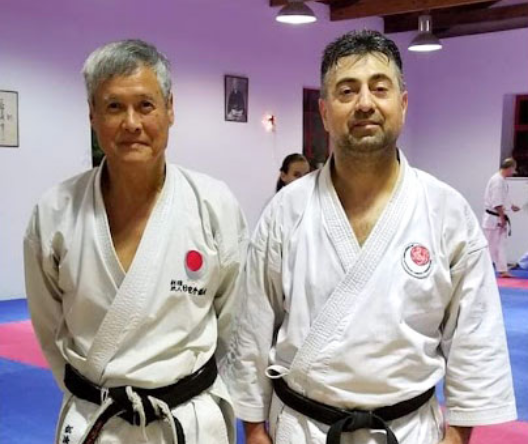
The Convergence of Travel and History
Victor grew up in Greece and he fell in love with its history which has shaped how he views the world. Even now when he returns to Greece, 33 years after leaving, he takes a walk from his old family home to the Parthenon to see the monument that has been standing for 2,500 years. “I know that it will still be there, and people will be walking by it long after I'm gone.”
He loves traveling, which he takes every opportunity to do. He sees understanding history and other cultures as a way to prepare the next generation. He prefers taking the long way to see attractions, walking to discover the cities and seeing the streets and cafés. “I walk through a neighborhood and wish I could go into an average house, meet the people, and see how they live.”
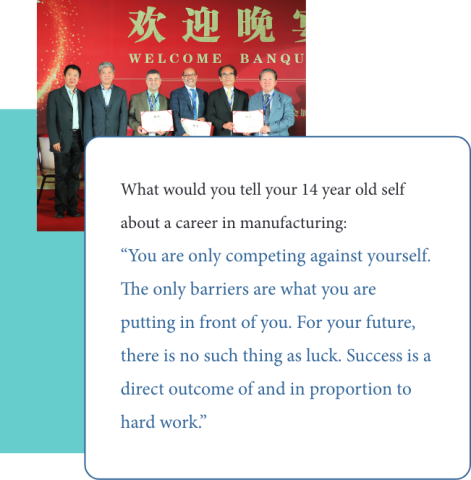
He is fascinated by how events have shaped the world and how history is being repeated in many ways. “Seeing a building from the 1700s makes a big impression on me,” he said. “It shows the continuity in life.”
Discipline, Hard Work, Technique Fuel his Success in Karate
He is a third degree black belt in Shotokan karate. Victor says one of the things that attracted him to karate was that he could be effective despite being small in stature (5’7”). He also found karate’s model appealing – hard work, commitment and technique repetition on the way to perfection. That discipline is a common thread in his life. He brings a similar approach to research and all his work.
“You don’t have to be big or strong; you can harness your body’s abilities to master techniques that have a devastating impact,” he said. “You practice the same technique until it is instinctive.”


